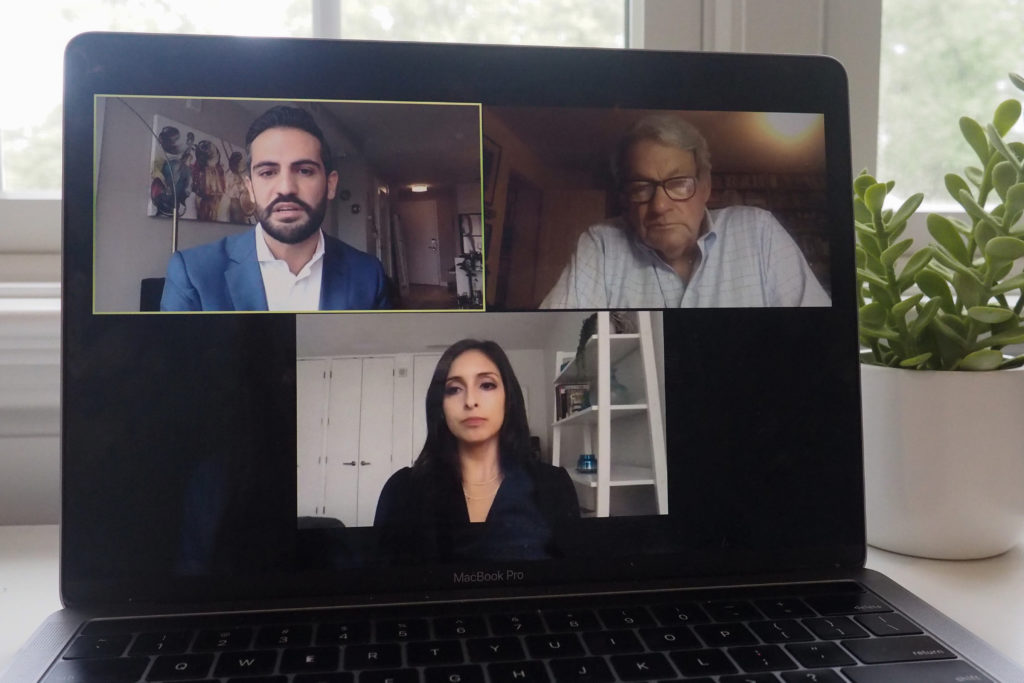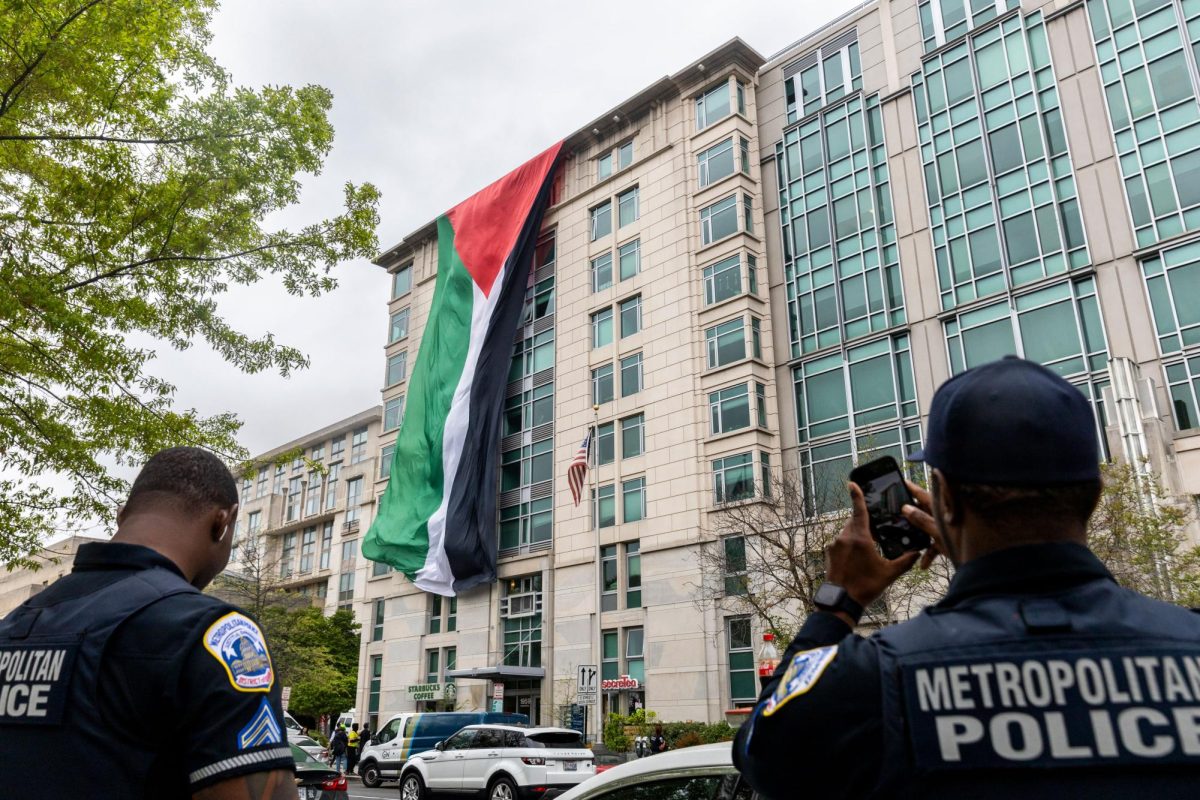Two political journalists and alumni discussed campaign strategies for the two main political parties for the 2020 presidential election at an online event Thursday.
Jeremy Diamond, a CNN White House correspondent covering President Donald Trump’s campaign and former Hatchet reporter, and Mariana Sotomayor, who covers Joe Biden’s campaign for NBC, analyzed strategy and crucial issues that each campaign will use to target voters heading into the November general election. Steven Roberts, a professor of media and public affairs, moderated the discussion, which was hosted by the Office of Alumni Relations as one of its several events on the 2020 presidential election.
Diamond and Sotomayor said the election comes at an “unprecedented” moment in American politics, as the COVID-19 pandemic has obstructed the campaign trail with new public health guidelines and injected new tension between the Trump and Biden campaigns. As Biden focuses on attacking Trump’s mishandling of the pandemic during which almost 200,000 Americans have died so far, Trump has looked to racial justice protests to stress the need for renewed law and order that he says Biden can’t offer, they said.
“It’s been completely unprecedented and definitely an election that will be in the history books simply because we are in this virtual space,” Sotomayor said.
Sotomayor said the Biden campaign has solidified its pressure on Trump following the president’s recent “disparaging” comments about American military veterans and his admission that he intentionally downplayed the COVID-19 pandemic. She said Biden, after surpassing Trump in campaign fundraising last month, has launched more television advertisements and visited more battleground states after the race got off to a quiet start while the campaigns adjusted to new online operations.
“They really are doing more seizing on those attacks and now that they have the money and also the staff both digitally and also in the battlegrounds to be able to just turn around the messaging, putting that out as quickly as possible,” she said.
Diamond said the Trump campaign has shifted its focus to the law and order narrative because many administration officials acknowledge the public’s understanding of Trump’s handling of the pandemic is “baked in.” He said Trump has made “race-based appeals” to White suburban voters he hopes to win back following the 2018 midterm elections, pointing to violence in urban areas as a need for stronger law enforcement and using people of color who support him to prove he isn’t a racist.
“He is somebody who has exploited the racial divides in this country and exploited particularly a sense of grievance among White Americans, a subset of White Americans at least, who feel like the changing demographics in this country are leaving them behind,” Diamond said.
After losing his leads in battleground states like Pennsylvania and Michigan, Trump looks to Florida as the “linchpin” of his reelection odds, Diamond said. He said the Trump campaign is trying to regain an edge in the Midwest, where the president has previously targeted conservative, evangelical Christians whose support has recently faded, but he said those voters can be won back with promise of a strong judiciary that aligns with their beliefs.
“Those who are turned off by the president’s personality ultimately fall back on issues like the Supreme Court and on issues trying to remind themselves or convince themselves they’re voting for somebody they may disagree with, may find even amoral, but ultimately will have the impacts that they hope,” Diamond said.
Diamond said no longer seeing the crowds of supporters that once brought the candidates momentum along the campaign trail has made reporting much more difficult during the pandemic.
“It’s a lot more difficult this time around than in 2016 I think because of the pandemic,” Diamond said. “In 2016, I was on the Trump campaign press plane every day throughout the election, and being able to get that gut check from voters on the ground and seeing the energy, seeing the momentum was something that was so crucial.”








